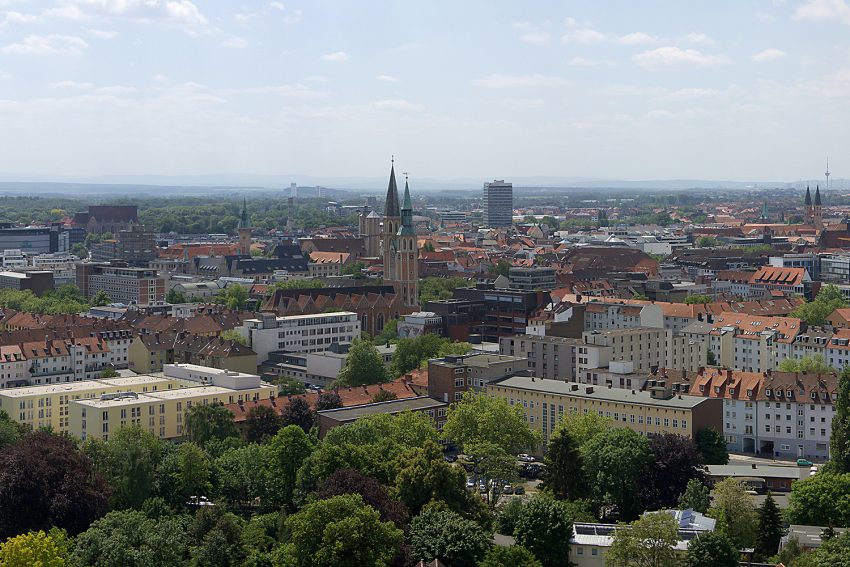Climate Future Lab investigates the effects of microclimate on health TU Braunschweig participates in new research network
Urban areas are highly sensitive to the effects of climate change, such as prolonged heat waves, severe storms and flooding. What are the specific links between urban microclimate and human, animal and ecosystem health? What effects do urban climate adaptation measures have? These are the questions to be addressed by the new Climate Future Lab UMEX-HOPE at the Centre for Climate Research Niedersachsen (ZKfN), in which TU Braunschweig is participating with its Institute of Geoecology. The research project is being funded with around five million euros from the zukunft.niedersachsen joint funding programme of Niedersachsen and the Volkswagen Foundation.

The new Climate Future Lab is investigating the effects of the urban microclimate on the health of humans, animals and ecosystems. Photo credit: Stephan Weber/TU Braunschweig
Falko Mohrs, Niedersachsen’s Minister for Science and Culture: “The consequences of climate change are already being felt by all of us: heat waves, increased heavy rainfall, floods, polluted air masses – these pose a health risk, especially in densely populated areas. The UMEX-HOPE project fills an important research gap: its holistic approach allows precise identification of risk zones and provides valuable insights for planning and improving urban agglomerations in Niedersachsen and other areas.”
Katharina Zickwolf, Managing Director of the Centre for Climate Research Niedersachsen, commented on the funding decision: “I warmly welcome UMEX-HOPE to the ZKfN and look forward to working together. The link between microclimate and health is a particularly promising and exciting field of research and offers numerous interfaces with our existing Climate Future Labs.”
The interdisciplinary and multi-location consortium behind UMEX-HOPE brings together scientists from Leibniz Universität Hannover, TU Braunschweig, TU Berlin, University of Veterinary Medicine Hannover and the University Medical Centre Göttingen with a broad network of municipal partners.
Heat and air pollution
The Climatology and Environmental Meteorology Working Group at the Institute of Geoecology at TU Braunschweig is represented in the new UMEX-HOPE Climate Future Lab with two subprojects. Using experimental research approaches and data-driven modelling, the scientists will identify urban areas at low and high risk of heat and air pollution and investigate adaptation measures. As people typically spend more than 80 per cent of their time indoors, the research project will also investigate the climate and air quality situation in research apartments. The research sites are mainly located in the urban areas of Hannover and Braunschweig, as well as in smaller towns and communities in the surrounding area.
“I am very pleased about the funding for UMEX-HOPE. The research project opens up the possibility of gaining important insights into the diversity of urban microclimates, identifying areas of pollution and investigating suitable adaptation measures,” says Professor Stephan Weber, Head of the Climatology and Environmental Meteorology working group. “I expect exciting results that will certainly provide starting points for further research in the field of urban adaptation to climate change.”
Five Climate Future Labs
UMEX-HOPE will be the fifth Climate Future Lab at the Niedersachsen Centre for Climate Research and is part of the research focus “Microclimate in Urban Agglomerations”. The existing Climate Future Labs DIVERSA, FoResLab, Open Cultures and Urban Climate Future Lab are already conducting research on “Impacts of Climate Change on Forest Ecosystems” and “Climate Change and Urban Mobility”. The funding period for the Climate Future Labs is six years. The Climate Future Labs are coordinated by the office of the Niedersachsen Climate Research Centre, which is based at TU Braunschweig.
Source: Joint press release by the Niedersachsen Climate Research Centre, the Niedersachsen Ministry of Science and Culture and the Volkswagen Foundation.
